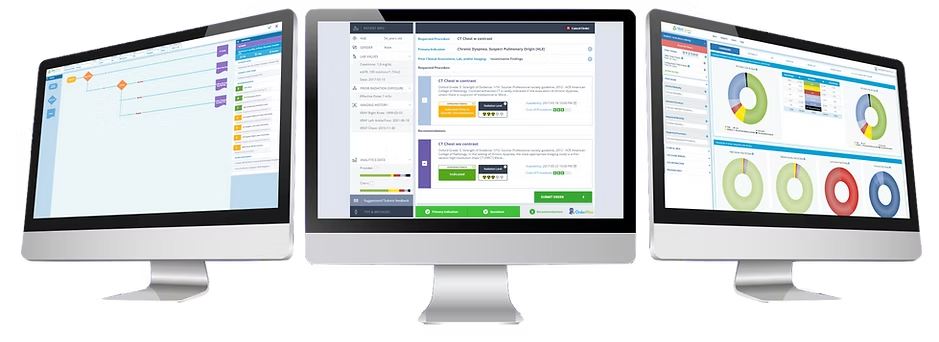Healthcare in Québec is seeing great returns on a project to implement a digitized Clinical Decision Support (CDS) system.
Santé Québec introduced the digitized system in 2024 and has since expanded to several different regions across the province.

“MedCurrent CDS was integrated into the existing computerized provider order entry (CPOE) and was deployed in Laurentides in April 2024, in Outaouais in November 2024, and Abitibi-Témiscamingue in February 2025,” explained Nathalie Bazylewicz, Project Manager for Santé Québec. “A total of 149 clinical indications and 1874 scenarios have been integrated using recommendations from the CAR Diagnostic Imaging Referral Guidelines, l’Institut National d’Excellence en Santé et Services Sociaux (INESSS), as well as custom entries.”
Bazylewicz acknowledged challenges during implementation, including the complexity of IT systems, resource allocation, competing priorities, and securing physician buy-in.
“As a French-speaking province, Quebec faced additional challenges in aligning the CDS with Canadian and Quebec-specific clinical practice guidelines,” she noted. “Support from CAR and INESSS was instrumental in overcoming these hurdles.”
The project’s success is evident. “Clinical content coverage has grown from 90% to 95% since the first launch, thanks to ongoing updates from CAR and INESSS. Additionally, 6% of orders have been canceled as ‘non-appropriate,’ resulting in estimated annual savings of $750,000 for a site processing 40,000 referrals,” said Bazylewicz.
A unified CDS system across Canada remains a priority for CAR, which has advocated for standardization with government officials and healthcare leaders. In November 2024, CAR hosted the Conference on Digitizing Healthcare Referrals in Toronto, bringing together radiology experts, policy representatives, and other key stakeholders.
“Historically, CDS implementation has been led by local healthcare organizations, often with limited coordination,” Bazylewicz noted. “However, a more comprehensive approach, as demonstrated in Quebec, achieves greater success by addressing the complexities of policy frameworks, technical systems, clinical needs, and implementation efforts.”
Despite Quebec’s progress, adoption across other provinces remains limited.
“Some provinces, like Alberta, have implemented CDS for advanced imaging (CTs, MRIs) but rely on American guidelines. Greater visibility of these initiatives and access to their outcomes would be invaluable for learning and collaboration,” Bazylewicz said. “In Quebec, embedding CAR guidelines into our CDS has enhanced clinician engagement by aligning with local practices and positively influencing CDS usage.”
MedCurrent, the Toronto-based supplier of the CDS software, has been at the forefront of implementing diagnostic CDS solutions globally.
The Toronto-based CDS software supplier, MedCurrent, has been driving the implementation of diagnostic CDS solutions internationally.
“We have seen great outcomes delivering integrated CDS solutions in primary and secondary care settings across England, but adoption in Canada has been limited to early innovators in local settings,” said Hasan Dharamshi, President at MedCurrent. “It’s refreshing to see Santé Québec taking the lead on a provincial CDS strategy to improve patient care and health system efficiency, providing a roadmap for healthcare and policy leaders across country.”
Quebec’s efforts highlight the potential for digitized referrals to improve healthcare efficiency and patient care nationwide.
Find out more about the CAR’s efforts to implement digitized referrals across jurisdictions nationwide.
